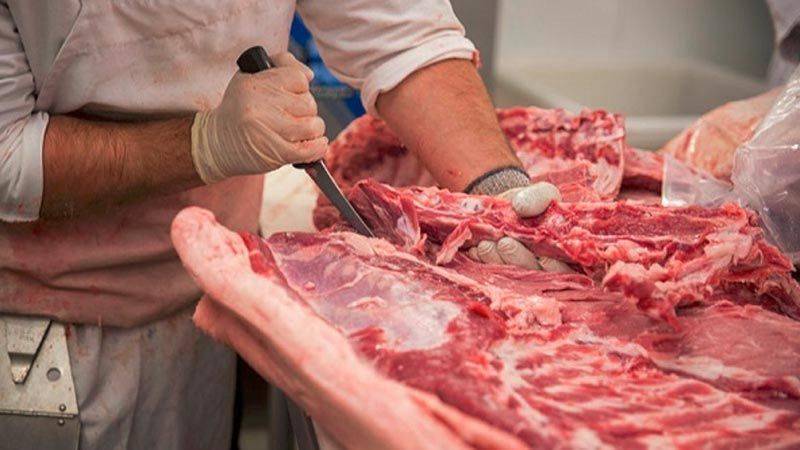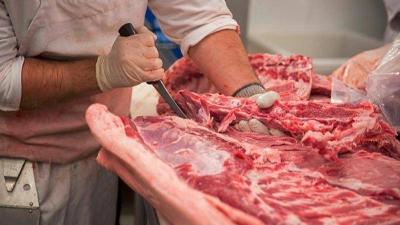Under the title "The Opening of Subsidy Cuts? A Meat Crisis Looming," Rajana Hamieh wrote an article in the Al-Akhbar newspaper, noting that "yesterday, veterinary inspection officers from the Ministry of Agriculture and state security forces conducted surprise inspections on livestock farms in the Mount Lebanon, Bekaa, and Baalbek-Hermel governorates after complaints about monopolistic practices by some livestock traders and importers. The inspections aimed to 'match the accounts' of reality with the files submitted by importers and traders, specifically large ones, to the ministry. Although it may be too early to judge these inspections, awaiting their results, the reality faced by people indicates ongoing issues."
The author added that "there is a complaint about the state of the sector, which this time is twofold: citizens are complaining about the renewed rise in meat prices and the lack of availability in various locations, while butchers complain about the scarcity of livestock and even the meat they purchase from wholesale markets. While this crisis is not sudden, having stemmed from the import mechanism imposed by the central bank, what is happening today warns that worse is to come, with everyone acknowledging that there is a problem in the sector. The problem is attributed to various reasons, primarily the 'held' transactions in the central bank, according to importers, farm owners, and sources from the Ministry of Economy, indicating that 'the current issue lies in the delay of transactions at the Central Bank of Lebanon, not with the relevant ministries.' The crisis unfolds as follows: 'We obtain approvals from the Ministry of Agriculture, then from the Ministry of Economy, and then from the commercial bank. After that, the transaction goes to the Central Bank, where it sits for over a month,' said Abdel Ghani Al-Mallah, Chairman of the Association of Meat Traders in Lebanon. He added that the ships arrive at the port of Beirut and the transactions do not leave the central bank, questioning: 'Is this the opening of subsidy cuts?' These reasons have led these stakeholders to apply pressure on the state by keeping livestock on their farms and not selling them for fear of losses due to the price difference between the 'subsidized dollar' and the black market dollar. They say that when the transaction reaches the Central Bank, 'we are kissing hands, and nothing comes out in our favor.' One of them stated that 'the central bank' held his transaction for a month and a half, even though 'my connections are solid.’ For this reason, they found the solution in keeping livestock on their farms until the funds are transferred abroad, allowing them to 'request the next shipment.'
The complaints extend to the two concerned ministries: Agriculture and Economy. The former, although bound by the amount of subsidy, 'sometimes neglects small traders in its quotas,' according to one importer, as it 'takes into account what our imports were three years ago, which does not accurately reflect the current situation, especially since what we had before that time is not what we had last year before the crisis.' At the Ministry of Economy, 'I do not understand why the transaction needs to remain for 20 days awaiting a single signature.' Therefore, these stakeholders chose to confront the state, resulting in sufferers along the way—primarily citizens, small traders, and butchers who do not own private farms. While it is true that the mechanism of the Central Bank is a key part of the reasons for the crisis, there are beneficiaries, predominantly large traders and importers who control an entire market and the livelihoods of citizens. As soon as they decide to cut 'supplies,' signs of shortages begin to emerge in the market, manifesting in a reduction of meat or a rise in its prices. This is something people experience daily, whether through soaring prices of certain types of meat reaching 60,000 Lebanese pounds for beef and 100,000 for lamb on the one hand, and subsequent price discrepancies from one place to another, leading to a situation based on 'everyone acting in their own interests'. So, does the state bear the full responsibility alone?
Hamieh concluded her article by stating that 'what is happening today shows that the responsibility is shared between the state and the traders. This is what sources from the Ministry of Agriculture and some traders say. The Ministry of Agriculture knows well that the complaints it received about some farm owners refusing to deliver livestock did not arise out of nowhere; hence, it conducted surprise inspections yesterday to 'match the accounts.' As for the traders who consider themselves victimized by the state and large traders, they speak 'of monopolies in this sector just as in others, where a number of traders control a significant share here, and they are known by name. Naturally, when these traders withhold supplies, we witness a crisis.' Nevertheless, there are no solutions that can restore matters to their rightful state 'amidst such monopolies'... and today's hope rests on the inspections, 'perhaps the stick will make a difference!'




